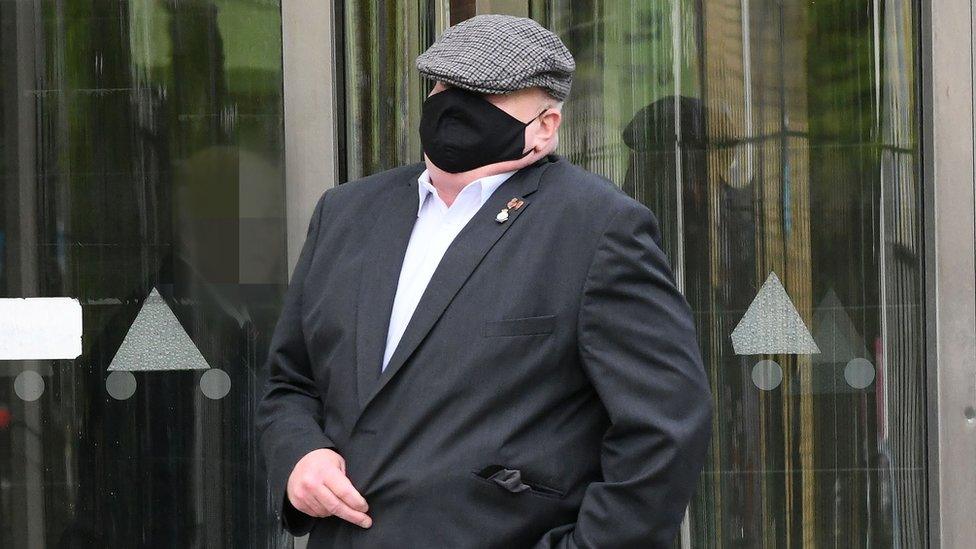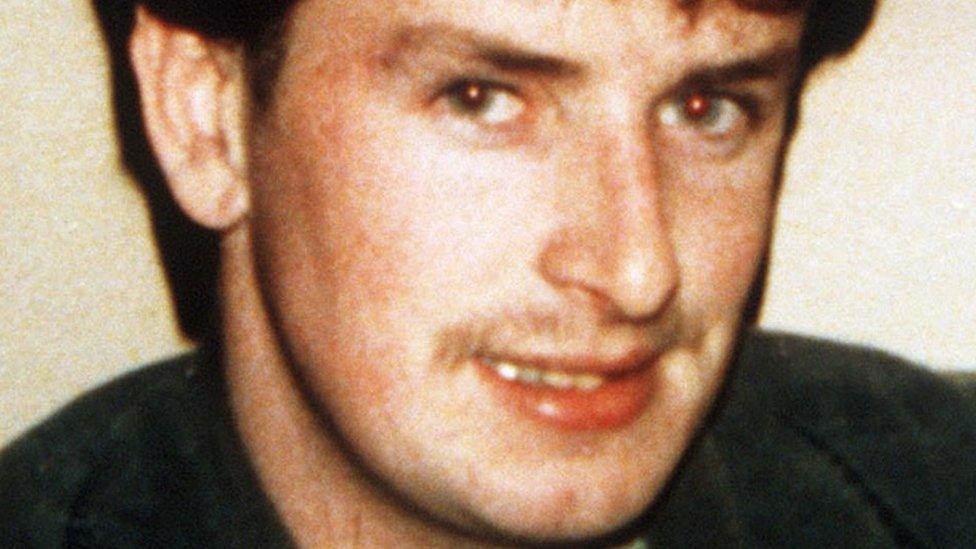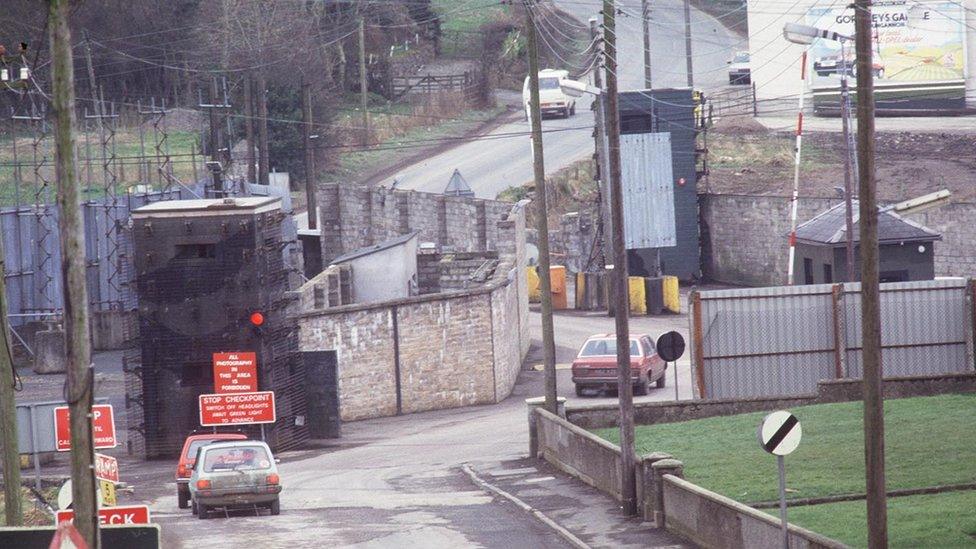Aidan McAnespie: Ex-soldier says fatal shooting was 'accidental'
- Published

David Holden, 52, is charged with the manslaughter of Aidan McAnespie
An Army veteran on trial for a fatal shooting during the Troubles, has told a court the incident was "accidental" and he had not been aiming the machine gun at the victim.
David Holden, 52, has been giving evidence at Belfast Crown Court.
He is charged with the manslaughter of Aidan McAnespie, 23, who was killed near a checkpoint at Aughnacloy, County Tyrone, in February 1988.
Mr Holden was aged 18 at the time and on his first day of checkpoint duties.
He was manning a general purpose machine gun inside a sangar as Mr McAnespie was walking through the checkpoint on his way to a GAA match.
Although Mr McAnespie was "a person of interest" to soldiers, he was unarmed and posed no threat.
Mr Holden told the court: "I noticed the machine gun was not in the correct position.
"I picked it up by the grip, to centralise it in the window, at which stage my finger ended up on the trigger."
Not long before the shooting, he had switched positions with another soldier and taken over the machine gun position.

Aidan McAnespie, 23, was hit in the back by a bullet as he walked through a checkpoint in 1988
The former Grenadier Guardsman said he had relived the shooting every year since and then, when the case started in 2018, had relived it "every month and every day".
He told the court that 34 years later he did not have a precise recollection of what exactly happened, but had a "theory".
Mr Holden explained: "It was a coldish day. With the washing down of the walls and floor, our hands had been in and out of water for a good couple of hours.
"The machine gun caught my webbing which made me lose my grip… the rounds went off and I just stood in shock."
He said he swore "because the weapon should have been made safe".
Mr Holden told the court the only recollection he had of checks being carried out on the weapon was several hours before the incident that morning.
'Weapon should have been made safe'
Mr McAnespie was about 300m from the checkpoint when he was hit by one of three shots which ricocheted off the road.
Under cross-examination from his lawyer, Mr Holden was asked: "When you touched the gun did you know it was in a ready-to-fire state?"
Mr Holden answered: "No. The weapon should have been loaded and made safe."
The lawyer then said: "Did you make an assumption the gun was in its made safe state?"
The defendant responded: "I had no reason to believe it was made ready."
Mr Holden added that until the trial started he was not aware of any weapon handover procedures, except for first thing in the morning.
He said following the incident he "ended up with PTSD (post-traumatic stress disorder) and lost self-confidence".
"I used to be an out-going person but after the incident I closed down and did not want to be around lots of people," he told the court.

Mr McAnespie was walking through a border checkpoint near Aughnacloy, County Tyrone
A prosecution lawyer said that Mr Holden's actions had been "stupid and grossly negligent" and had resulted in someone's death.
The defendant said he did not accept that.
'100% sure' gun not fired deliberately
Under cross-examination, Mr Holden said he had lost control of the weapon, and that "thinking about it" he could have handled it differently.
The army veteran was then re-examined by his own lawyer, where he was asked: "Did you pull the trigger deliberately?"
Mr Holden told the court: "No I did not."
He was then asked if he was sure.
The defendant replied: "Yes, 100% sure about that."
With no further witnesses called to give evidence in the trial, prosecution and defence will now make oral submissions to Mr Justice O'Hara on 21 June.
The judge said "if at all possible" he hoped to deliver judgement before the end of June.
The case continues.